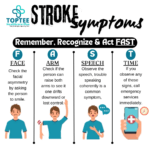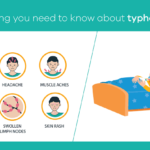Alcohol is a psychoactive substance that can have significant effects on the body and brain. Understanding its effects is crucial for responsible consumption and awareness of potential risks.
Here are some key aspects to consider;
SHORT-TERM EFFECTS:

Short-term effects
1. Intoxication:
Alcohol impairs cognitive function, judgment, and coordination.
2. Relaxation and euphoria:
Alcohol can produce feelings of relaxation and happiness.
3. Impaired judgment:
Alcohol can lead to risk behaviour and poor decision-making.
4. Physical effects:
Alcohol can cause slurred speech, poor coordination, and slowed reaction times.
Remember, responsible alcohol consumption is essential to minimize risks and avoid negative consequences. If you or someone you know struggles with alcohol use, seek professional help and support.
LONG-TERM EFFECTS:

1. Addiction:
Regular alcohol consumption can lead to dependence and addiction.
2. Liver damage:
Excessive alcohol consumption can cause liver inflammation and scaring.
3. Increased cancer risk:
Alcohol consumption is linked to various types of cancer, including liver, breast, and colon cancer.
4. Mental health impacts:
Chronic alcohol consumption can contribute to depression, anxiety, and other mental health issues.
5. Nutritional deficiencies:
Alcohol can interfere with nutrient absorption, leading to deficiencies and related health problems.
OTHER CONSIDERATIONS:
1. Withdrawal symptoms:
Stopping alcohol consumption abruptly can lead to withdrawal symptoms like tremors, anxiety, and seizures.
2. Interactions with medications:
Alcohol can interact with prescription medications, amplifying side effects or reducing effectiveness.
3. Pregnancy and breastfeeding:
Alcohol consumption during pregnancy or breastfeeding can harm the developing fetus or baby.
4. Age and health status:
Older adults, pregnant women, and people with certain health conditions should limit or avoid alcohol consumption.
Remember, responsible alcohol consumption is essential to minimize risks and avoid negative consequences. If you or someone you know struggles with alcohol use, seek professional help and support.
An individual who struggles with alcohol addiction is commonly referred as:
- Alcohol addict
- Alcoholic
- Problem drinker
- Alcohol abuser
- Petson with alcohol use disorder (AUD)
It’s important to note that alcohol addiction is a treatable condition, and seeking professional help from a medical provider, therapist, or support group can provide individuals with the resources they need to overcome their addiction and achieve long-term recovery.
Some popular support groups for alcohol addiction include:
- Alcoholics Anonymous (AA)
- Smart Recovery
- National Association of Alcoholics (NAA)
- Alcohol Support Groups
Remember, seeking help and support is the first step towards recovery.




